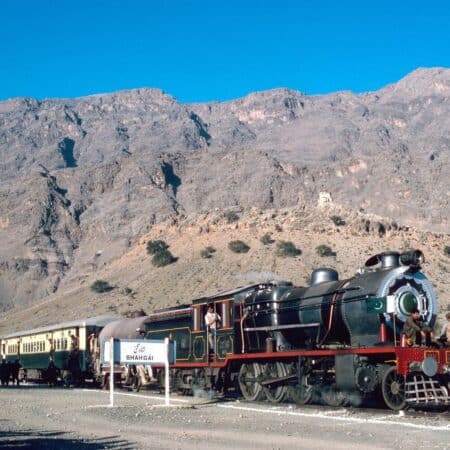
Pakistan Institute of Development Economics
- Home
Our Portals
MenuMenuMenuMenuMenuMenuMenu - ResearchMenuMenuMenuMenuMenuMenuMenu
- Discourse
- The PDR
- Our Researchers
- Academics
- Degree Verification
- Thesis Portal
- Our Portals

Pakistan Railways: Why not on Rails? A Revisit
Pakistan Railways Track Record
Following on from the November 16 PIDE webinar “Pakistan Railways or Pakistan’s Railways” and the subsequent blog “Pakistan Railways-Why not on Rails?” of December 01, that discussed the financial aspects, we are sharing a situational analysis of Pakistan Railways (PR) here. Undoubtedly, the transportation sector plays a climactic role in economic development and growth of the economy. Over the last few decades, Pakistan Railways has not been on track because of the multi-faceted challenges of poor governance, political interference, corruption, inadequate human capital, poor infrastructure, and huge deficits are preventing Pakistan’s railways from being on rails. In addition, the growing share of investment in road infrastructure and the continued low investment in Pakistani railways have had a negative impact on the financial position of Pakistani railways. Table 1 below provides a summary of Pakistan Railways’ profits and losses between 1955 and 2018.

Human Resource Management
As noted above, the lack of human resources, nepotism and political involvement in the appointment of employees contributed greatly to the collapse of the Pakistani railways. Political and personal interests are involved in the placements and transfers of employees, which cause indignation and the feeling of job insecurity among them and have led to a lack of effectiveness of the organization. In addition, long-term arrangements and their enforcement are severely affected by persistent changes in the placement of senior public servants. Human resources management remains an unresolved issue, even though the current administration of PR states that merit and job security assignments are their primary concerns. There is a declining trend in the number of employees hired by PR. At the same tie, the associated cost shows an upsurge, as depicted in Figures 1 and 2, respectively.

Source: Pakistan Railways Year Book 2017-18

Source: Pakistan Railways Year Book 2017-18
Poor infrastructure
Poor infrastructure also contributing in the distraction of Pakistan Railways. Most of Pakistan’s railway resources, including physical infrastructure, including physical infrastructure, have been used to their full potential and are no longer productive, seriously disrupting the effectiveness of the work. While infrastructure development has been identified as the primary concern by the current administration, maintenance and repair expenditures are a major contributing factor to overall operating costs. In addition, locomotives with operational status were also the reason for the dispute within PR’s operating and mechanical services. The total number of locomotives owned per RP, including unproductive and in-service locomotives, shown in Figure 3.

Source: Pakistan Railways Year Book 2017-18.
Ticketless Travelling
Travelling without a ticket on Pakistan Railways also occurs quite frequently, which creates losses for Pakistani railways. This unethical activity is most apparent on branch lines where it is believed to occur with the support of railway police and ticket verifiers. To increase monetary gains, Pakistan’s railways must improve administration to protect these leaks. Table 2 shows the number of passengers and the fines they faced.

Corruption
Corruptiondestroys the confidence of citizens in the public sector to do what is in their best interests. As Sheikh Rashid Ahmed said, Pakistan’s public sector is largely prey to corruption, and overcoming these corrupt activities among government officials is a major preoccupation of the establishment. In order to combat corruption at the micro and macro levels, the Pakistani railways had established the new standards of incorruptibility and implemented several safety measures by initiating the principles of accountability, transparency and effective fiscal management for the past four years. In addition, the vigilance management has been relaunched in order to prevent acts of corruption through internal control. Officials involved in corruption were correctly taken and provided severe penalties with the dismissal of the service awarded.
Concluding Remarks
Today, the transport sectors, especially rail, play a vital role for the socio-economic development of any country. In analyzing the situational aspects of the Pakistani railways, we have observed that Pakistani Railways has suffered a series of losses in recent decades. In addition, poor infrastructure and low service standards contribute to the deteriorating Pakistani railroad. Therefore, to improve the performance of Pakistan Railways concerned authorities could encourage the public-private partnership particularly in advancement of existing and new infrastructure. Moreover, Pakistan Railways can get help from publicity to attract the public towards railways. Finally, and most importantly, Pakistani railways need to engage their officials; in more commercial deals with different industries to increase Pakistan Railways revenues.
Download full PDF


